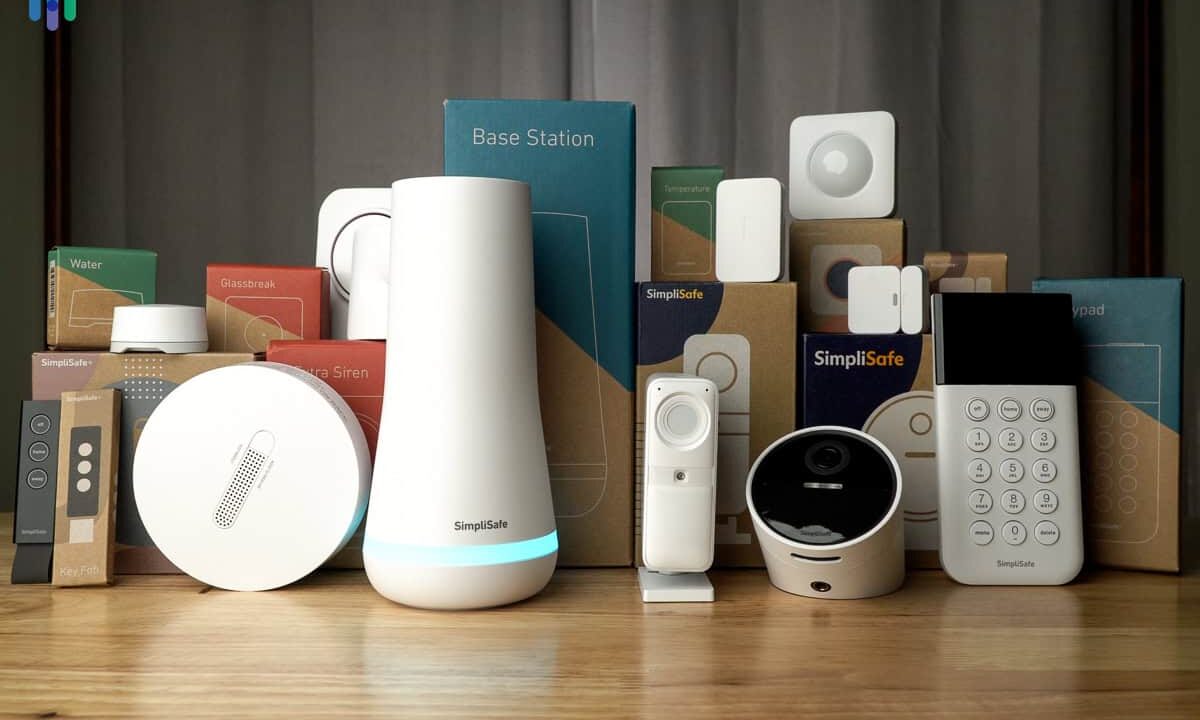Senior care is more than just a buzzword—it’s a lifeline for millions of older adults and their families. As we age, our needs evolve, often requiring specialized support to maintain health, independence, and quality of life. But what exactly does senior care mean? In this article, we’ll dive deep into the definition of senior care, explore its various forms, and provide practical insights to help you or your loved ones navigate this essential phase of life. Whether you’re planning for the future or seeking immediate solutions, this guide is designed to inform, inspire, and empower.
Defining Senior Care: The Basics
Senior care refers to a range of services and support systems designed to meet the physical, emotional, and social needs of older adults, typically those aged 65 and above. It encompasses everything from in-home assistance to full-time nursing care, tailored to individual health conditions, preferences, and financial situations. The goal? To help seniors live safely, comfortably, and with dignity as they age.
Why Senior Care Matters
As people live longer, the demand for senior care grows. According to the U.S. Census Bureau, by 2030, one in five Americans will be over 65, highlighting the critical need for accessible, high-quality care options. Senior care bridges the gap between independence and dependency, offering solutions that balance safety with autonomy.
Types of Senior Care: A Breakdown
Senior care isn’t one-size-fits-all. It includes a spectrum of services, each addressing different levels of need. Below, we explore the main types of senior care to help you understand what’s available.
In-Home Care
In-home care allows seniors to remain in their own homes while receiving assistance with daily tasks like bathing, meal preparation, or medication management. Caregivers, often trained professionals, provide personalized support tailored to the individual’s needs.
Assisted Living
Assisted living facilities offer a middle ground between independent living and nursing homes. Residents live in private or semi-private apartments with access to 24/7 staff for help with activities like dressing or mobility, while still enjoying social activities and amenities.
Nursing Homes
Nursing homes provide round-the-clock medical care for seniors with complex health conditions, such as dementia or chronic illnesses. These facilities are ideal for those requiring intensive support that family or in-home care cannot provide.
Memory Care
Memory care is a specialized form of senior care for individuals with Alzheimer’s or other forms of dementia. These facilities offer secure environments, structured routines, and trained staff to manage memory-related challenges effectively.
Adult Day Care
Adult day care centers provide daytime supervision and activities for seniors, allowing family caregivers a break. These programs often include meals, social events, and health services, making them a flexible option for part-time care.
Hospice and Palliative Care
Hospice and palliative care focus on comfort and quality of life for seniors with terminal illnesses. While hospice is typically for those with six months or less to live, palliative care can be provided at any stage of a serious illness.
Comparing Senior Care Options: Which is Right for You?
Choosing the right senior care option depends on factors like health, budget, and personal preferences. Below is a comparison table to help you weigh your options.
| Care Type | Best For | Cost Range (Monthly) | Level of Care |
|---|---|---|---|
| In-Home Care | Independent seniors needing light support | $2,000–$5,000 | Low to moderate |
| Assisted Living | Seniors needing help with daily tasks | $3,500–$7,000 | Moderate |
| Nursing Home | Seniors with complex medical needs | $7,000–$12,000 | High |
| Memory Care | Seniors with dementia or Alzheimer’s | $5,000–$9,000 | High, specialized |
| Adult Day Care | Seniors needing daytime supervision | $1,500–$3,000 | Low to moderate |
| Hospice/Palliative | Seniors with serious or terminal illness | Varies (often covered by Medicare) | High, comfort-focused |
Pros and Cons of Senior Care Options
- In-Home Care
- Pros: Allows seniors to stay in familiar surroundings; highly customizable.
- Cons: Can be expensive for round-the-clock care; limited social opportunities.
- Assisted Living
- Pros: Balances independence with support; vibrant community activities.
- Cons: Loss of full independence; costs can add up with additional services.
- Nursing Homes
- Pros: Comprehensive medical care; 24/7 supervision.
- Cons: Less personal freedom; can feel institutional.
- Memory Care
- Pros: Specialized for cognitive impairments; safe, secure environments.
- Cons: Higher costs; limited availability in some areas.
- Adult Day Care
- Pros: Affordable; supports family caregivers.
- Cons: Not suitable for 24/7 care needs.
- Hospice/Palliative Care
- Pros: Focuses on comfort and dignity; often covered by insurance.
- Cons: Emotionally challenging; limited to serious illnesses.
A Personal Story: Finding the Right Care for My Grandmother
When my grandmother, Rose, began struggling with arthritis and early-stage dementia, our family faced a tough decision. She was fiercely independent, having lived alone in her cozy Chicago bungalow for decades. But when she forgot to turn off the stove one too many times, we knew it was time to explore senior care. After researching, we opted for in-home care to help her with cooking and medication reminders. The caregiver, Maria, not only ensured her safety but also became her confidante, sharing stories over tea. This experience taught me that senior care isn’t just about physical support—it’s about preserving dignity and connection.
Why Personalization Matters in Senior Care
Every senior has unique needs, shaped by their health, personality, and life experiences. A one-size-fits-all approach rarely works, which is why assessing individual needs—through medical evaluations or family discussions—is critical before choosing a care option.
Navigating Senior Care: Where to Start
Finding the right senior care can feel overwhelming, but breaking it down into steps makes it manageable. Here’s how to begin:
- Assess Needs: Work with a doctor to evaluate the senior’s health, mobility, and cognitive status.
- Explore Options: Research local providers, from in-home care agencies to assisted living facilities.
- Consider Finances: Review insurance, Medicare, or Medicaid coverage, as well as personal savings.
- Visit Facilities: Tour assisted living or nursing homes to assess quality, staff, and environment.
- Involve the Senior: Include them in decisions to respect their preferences and autonomy.
Where to Find Senior Care Services
- Local Agencies: Check Eldercare Locator for government-backed resources.
- Online Directories: Websites like A Place for Mom connect families with vetted providers.
- Community Referrals: Ask doctors, friends, or religious organizations for recommendations.
Tools and Resources for Senior Care
Investing in the right tools can enhance senior care, whether at home or in a facility. Here are some of the best options:
- Medical Alert Systems: Devices like Life Alert or Medical Guardian provide instant emergency access.
- Home Modifications: Grab bars, ramps, or smart home devices improve safety and accessibility.
- Caregiver Apps: Platforms like CaringBridge or Lotsa Helping Hands streamline communication and scheduling.
Best Tools for Senior Care: A Quick Guide
| Tool | Purpose | Cost |
|---|---|---|
| Life Alert | Emergency response system | $50–$100/month |
| GrandPad Tablet | Easy-to-use device for seniors | $40–$70/month |
| Grab Bars | Prevents falls in bathrooms | $20–$50 per unit |
| CaringBridge App | Coordinates family caregiving tasks | Free |
People Also Ask (PAA) Section
Below are real questions from Google’s “People Also Ask” feature, answered concisely to address searcher intent.
What is the difference between senior care and elder care?
Senior care and elder care are often used interchangeably, referring to services for older adults. However, elder care sometimes implies a broader scope, including legal or financial planning, while senior care focuses on health and daily living support.
How much does senior care cost?
Costs vary widely by care type. In-home care averages $2,000–$5,000 monthly, assisted living $3,500–$7,000, and nursing homes $7,000–$12,000. Medicare or Medicaid may cover some services, like hospice care.
What qualifies someone for senior care?
Seniors typically qualify if they need help with daily activities (e.g., bathing, eating), have chronic health conditions, or face cognitive challenges like dementia. A doctor’s assessment can clarify eligibility.
How do I find senior care near me?
Use online tools like Eldercare Locator or A Place for Mom, contact local agencies, or ask healthcare providers for referrals. Visiting facilities in person ensures they meet your standards.
FAQ Section
1. What does senior care include?
Senior care includes services like in-home assistance, assisted living, nursing homes, memory care, adult day care, and hospice. These address physical, medical, and emotional needs tailored to seniors.
2. How do I know if my loved one needs senior care?
Signs include difficulty with daily tasks, frequent falls, memory issues, or social isolation. A medical evaluation can help determine the level of care required.
3. Is senior care covered by insurance?
Medicare and Medicaid may cover specific services, like hospice or short-term nursing home stays. Private insurance or long-term care policies can also offset costs, but coverage varies.
4. Can seniors stay at home with senior care?
Yes, in-home care allows seniors to remain at home with help for tasks like cooking, bathing, or medication management, offering a cost-effective and comfortable option.
5. How do I choose a senior care provider?
Research providers, check reviews, visit facilities, and verify credentials. Ensure the provider aligns with the senior’s needs, budget, and preferences for the best fit.
The Emotional Side of Senior Care
Choosing senior care isn’t just a logistical decision—it’s deeply emotional. I remember the guilt my family felt when we realized Rose couldn’t live alone anymore. But seeing her thrive with Maria’s support reminded us that care is about love, not limitation. Whether it’s a caregiver sharing a laugh or a facility hosting game nights, senior care is about creating moments of joy and connection.
Planning for the Future
Senior care isn’t just for today—it’s about preparing for tomorrow. Start conversations early with loved ones about their wishes. Explore long-term care insurance or savings plans to ease financial burdens. By planning ahead, you can ensure peace of mind for everyone involved.
Conclusion: Empowering Seniors Through Care
Senior care is about more than meeting physical needs—it’s about honoring the lives, stories, and dignity of older adults. From in-home support to specialized memory care, the right option can transform lives, offering safety, comfort, and community. By understanding the types of care, comparing options, and leveraging resources, you can make informed decisions that empower seniors to age gracefully. Start exploring today—because every senior deserves care that feels like home.





